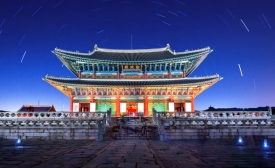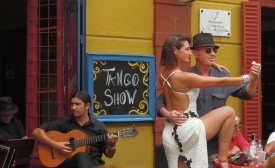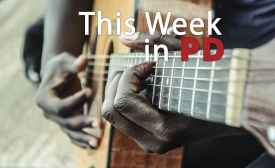soft power
The Indian Council for Cultural Relations (ICCR) is organizing a three-day international jazz festival that will witness the convergence of French, Israeli, Korean, Mexican and Spanish artists in Delhi. [...] "ICCR believes that music can play a key role in engaging in creative dialogue with other nations. Festivals like these help us in understanding cultures of other countries and also gives opportunity to our own people to interact with world class performers," she said.

CPD's discussion with the Republic of Korea's Ambassador for Public Diplomacy, Ms. Enna Park, focused on public diplomacy opportunities and challenges in the age of geopolitical unrest and digital disruption.

A look at how Argentina has adapted to the 21st century under the Macri administration.
“Economic development does work, but it does not work overnight,” Andrew Natsios, former Administrator of the United States Agency for International Development (AID), told The Cipher Brief. The problem with common criticisms of aid programs – that they are wasteful and do not produce real results – is that results are often measured only in the short term. As a result, intra-governmental audits and external studies may miss the true dividends of economic development programs, which could come to fruition decades down the line.

This week's stories focused on non-traditional public diplomacy tools.
Over 30 events are planned across the Derry City and Strabane District as part of this year’s Community Relations and Culture Awareness Week between 18th and 24th September. The aim of the Northern Ireland wide initiative is to engage with the public and urge them to consider and embrace the growing cultural diversity that exists in our local community.
It was only a few years ago that e-diplomacy was being heralded as an unalloyed force for good. This 21st Century form of statecraft would bring transparency and openness to the closeted world of international affairs...U.S. President Donald Trump has obviously highlighted the dangers of conducting foreign policy by social media. In the hands of the impulsive and uniformed, the smart phone becomes a dangerous weapon.
As World War II ended, America faced another challenge: the Cold War with the USSR and the Eastern Bloc it influenced. As relations began to freeze, it became clear that nuclear weapons, spies, and the traditional tools of war wouldn’t be enough to fight Soviet hegemony. And so the West, argues Greg Barnhisel, turned to their secret weapon: books.







